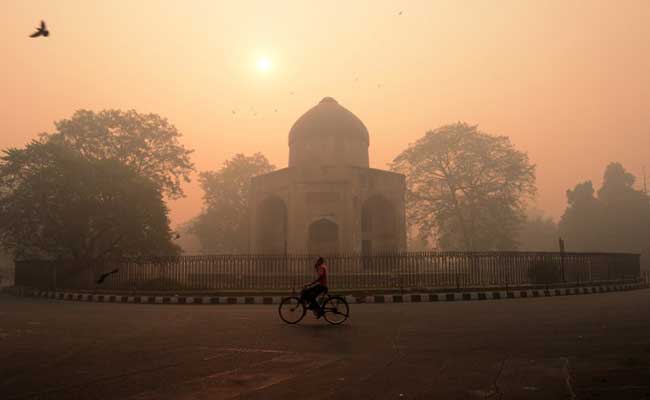New findings indicate the possibility that commonly experienced levels of air pollution not only affect heart and lung disease, but also sleep quality.

HIGHLIGHTS
- Air pollution can now also lead to lack of sleep
- Air pollution might be the culprit for you restless sleep last night
- Air pollution can lead to major respiratory disorders
Not only respiratory disorders, air pollution can now also lead to lack of sleep. Researchers analyzed data from 1863 participants with an average age of 68 in the Multi-Ethnic Study of Atherosclerosis (MESA) who also enrolled in both MESA's Sleep and Air Pollution studies. It's been noted that more than 60 per cent of people having low sleep efficiency due to their exposure to nitrogen dioxide in a time period of five years. So air pollution might be the culprit for you restless sleep last night.
The researchers looked at two of the most common air pollutants: NO2 (traffic-related pollutant gas) and PM2.5, or fine-particle pollution. Using air pollution measurements gathered from hundreds of MESA Air and Environmental Protection Agency monitoring sites in six U.S. cities, plus local environment features and sophisticated statistical tools, the research team was able to estimate air pollution exposures at each participant's home at two time points: one year and five years.
The group with the highest levels of NO2 over five years had an almost 60 percent increased likelihood of having low sleep efficiency compared to those with the lowest NO2 levels. The group with the highest exposures to small particulates (PM2.5) had a nearly 50 percent increased likelihood of having low sleep efficiency.
"These new findings indicate the possibility that commonly experienced levels of air pollution not only affect heart and lung disease, but also sleep quality. Improving air quality may be one way to enhance sleep health and perhaps reduce health disparities."
Improving the air quality has come up as the obvious solution to enhance the sleep health of individuals. You can follow some easy steps to conquer air pollution at your homes and keep your family healthy and safe by:
- Installing air purifiers at homes
- Avoiding smoking indoors
- Use of air fresheners
- Ensure proper ventilation in rooms and near gas stoves
- Wearing a mask outdoors
- Resort to car pooling
(With inputs from ANI)
DoctorNDTV is the one stop site for all your health needs providing the most credible health information, health news and tips with expert advice on healthy living, diet plans, informative videos etc. You can get the most relevant and accurate info you need about health problems like diabetes, cancer, pregnancy, HIV and AIDS, weight loss and many other lifestyle diseases. We have a panel of over 350 experts who help us develop content by giving their valuable inputs and bringing to us the latest in the world of healthcare.












